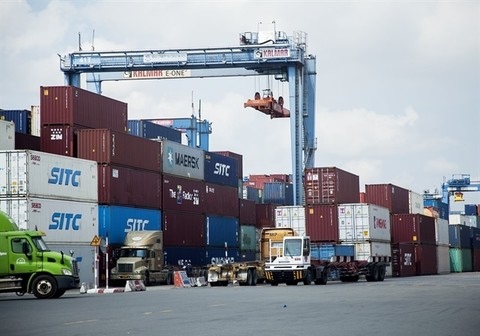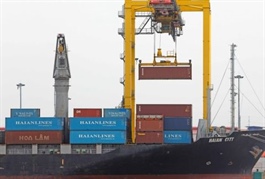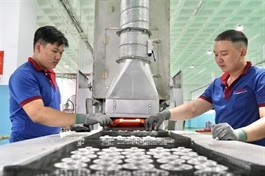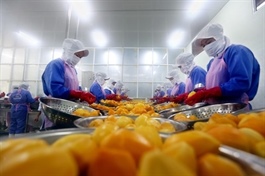HCMC services sector short of its full potential: conference
HCMC services sector short of its full potential: conference
While HCM City’s services sector has seen great growth and makes a big contribution to Việt Nam’s GDP, it faces several limitations that hinder its development, a conference held to discuss its development on Thursday heard.

Cát Lái Port in HCM City. The city is focusing on developing its services sector and overcoming obstacles to it. — VNA/VNS Photo |
HCM City is a large economic, commercial, tourism, and services hub with a favourable location close to the Mekong Delta and south-eastern provinces.
Nguyễn Văn Dũng, Deputy Chairman of the city People’s Committee, said HCM City identifies services as a key sector that plays a big role in the city’s economic growth.
Over the past 10 years it has accounted for over 60 per cent of the city’s economy, showcasing how it has been growing strongly.
But it has not achieved its full potential.
The sector consists mostly of small and medium-sized businesses, with a few large ones.
They thus have limited access to capital and collaboration between them is rare.
There are also issues with underdeveloped infrastructure (especially logistics and storage) and connectivity with nearby provinces.
Dũng said the development of the services sector needs connectivity within the city and with nearby provinces.
The city is working on a number of policies to facilitate its development, including a project titled “Building HCM City to become a large services hub of the country and the region, with modern and prestigious services of high added value.”
Bùi Tá Hoàng Vũ, Director of the city Department of Industry and Trade, said services with high added value are ones that satisfy basic demands of customers but also include additional services that improve the overall experience.
They are more complex and require a higher degree of expertise, advanced technologies and creativity, he said.
If the city could harness its development potential well, especially the high added value services, it could create a strong driving force for the socio-economic development of the southeast, the delta and even the entire country, he added.
Other experts said there are two trends that would greatly impact the city’s services sector, which are sustainability and regional connectivity.
Sustainability is important for services development as it ensures businesses can operate for a long time while also protecting the environment, they said.
As for regional connectivity, with other provinces and even other countries, it could help elevate the services sector and enhance its value, they added.
They also said the sector’s development needs to be in line with global trends such as digital transformation and creating an eco-system of services.
Dr Nguyễn Hoài Nam, Director of the Economic Law Programme at Hoa Sen University (HCM City), said in order to create a favourable business climate for local services providers, the city needs to tackle legal choke points and barriers that are driving up business expenses and hindering operations such as regulations on fire safety and inspections.
Since 2010 the city has been focusing on developing nine key services, including finance, banking, commerce, logistics, and tourism.
It has adopted numerous policies to develop its services infrastructure and transform the city into an international financial hub.























